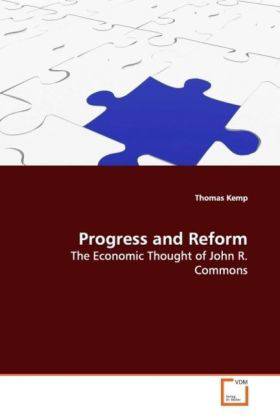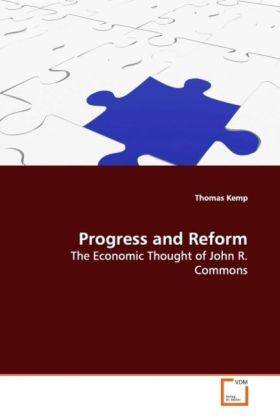
Je cadeautjes zeker op tijd in huis hebben voor de feestdagen? Kom langs in onze winkels en vind het perfecte geschenk!
- Afhalen na 1 uur in een winkel met voorraad
- Gratis thuislevering in België vanaf € 30
- Ruim aanbod met 7 miljoen producten
Je cadeautjes zeker op tijd in huis hebben voor de feestdagen? Kom langs in onze winkels en vind het perfecte geschenk!
- Afhalen na 1 uur in een winkel met voorraad
- Gratis thuislevering in België vanaf € 30
- Ruim aanbod met 7 miljoen producten
Zoeken
€ 86,45
+ 172 punten
Omschrijving
This study re-examines the economic thought of John R. Commons (1862-1945). Commons was a leading Progressive Era American economist based primarily at the University of Wisconsin. He was active in the La Follette administration in Wisconsin and drafted that State's Civil Service law (which became the basis of Federal law), created the Industrial Commission law, and the Public Utility Act -- the cornerstones of progressive era legislation. In addition he is commonly regarded as a founder of the American "Institutional" school of economic thought. Toward this end this work attempts to first, organize Commons' economic system into a workable framework, second, reconcile Commons' value conception with those of other founding authors in the original institutional tradition, and third, to show the linkages between Commons' thought and the research agenda of the newer institutional school.
Specificaties
Betrokkenen
- Auteur(s):
- Uitgeverij:
Inhoud
- Aantal bladzijden:
- 156
- Taal:
- Engels
Eigenschappen
- Productcode (EAN):
- 9783639135879
- Verschijningsdatum:
- 29/03/2009
- Uitvoering:
- Paperback
- Formaat:
- Trade paperback (VS)
- Afmetingen:
- 152 mm x 229 mm
- Gewicht:
- 235 g

Alleen bij Standaard Boekhandel
+ 172 punten op je klantenkaart van Standaard Boekhandel
Beoordelingen
We publiceren alleen reviews die voldoen aan de voorwaarden voor reviews. Bekijk onze voorwaarden voor reviews.









